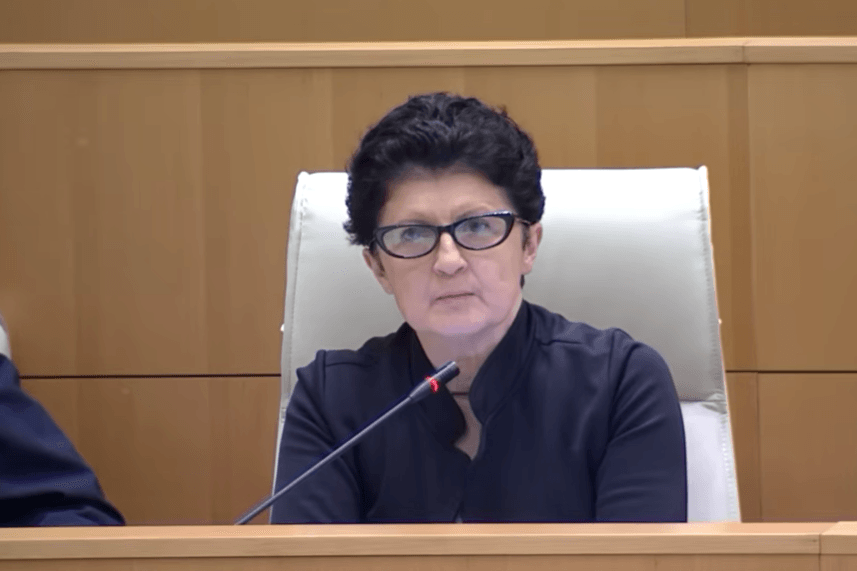
Georgian Dream has adopted new legislative amendments, including restrictions on freedom of speech, in their final reading. During the parliamentary discussion, ruling party MP Tea Tsulukiani called for an even harsher approach — adding defamation back to the criminal code.
It took only two days for the parliament, fully controlled by Georgian Dream and its satellites, to vote on the amendments for three hearings by an accelerated procedure, with the final vote held on Thursday.
The new legislation will shift the burden of proof in cases of defamation and libel from the plaintiff to the defendant. Moreover, Georgian Dream gave the bill a retroactive effect, meaning the legislation will also apply the statements made 100 days prior to its enactment.
In addition to the amendments already adopted, Tsulukiani proposed during the second reading that defamation should be considered an aggravating circumstance under the criminal code.
Tsulukiani, who chairs the parliamentary commission against the formerly ruling United National Movement (UNM) party, again attacked the UNM, stating that defamation was removed from the criminal code by then-President Mikheil Saakashvili after the 2003 Rose Revolution.
‘It was not only needed to label people according to his [Saakashvili] considerations, but, for example, all those who were brutally killed [during the UNM period] were accompanied by defamation’, she said.
Davit Matikashvili, Chair of the Parliamentary Procedural Committee, responded to Tsulukiani, saying that ‘We would be happy to consider [this proposal] with you, and if there is willingness, we can actively discuss it’.
Currently, defamation is regulated by the law on freedom of speech and expression — the very legislation that Georgian Dream amended on Thursday. Under the current law, defamation is handled as a civil dispute. If found liable, the defendant may be required to retract their statement or pay compensation for material or moral damages suffered by the claimant.
In recent months, Georgian Dream has passed other laws that restrict forms of expression that had not previously been punishable. One such law prohibits insulting officeholders, under which numerous politicians, journalists, and activists have been penalised and some even imprisoned.
Less media in courts, increased salary for judges
Alongside the law on freedom of expression, Georgian Dream has also proposed amendments to the law on courts. The changes covered a range of issues, including strict new limitations on journalists’ coverage of trials and an increase in judges’ salaries.
The now-passed amendments will prohibit filming inside court buildings — including courtrooms and hallways, as well as courtyards. The only exceptions will be for court employees or individuals authorised by the court.
If a third party wishes to record video or audio of a court proceeding, they must obtain a permission from the High Council of Justice for each specific court session.
Another amendment would toughen the provision regulating contempt of court. Under the current law, punishable acts of contempt include those committed by parties to the case, participants, or others present in the courtroom.
Under the amendments initiated by the ruling party, such conduct would become punishable in any context, including outside the courtroom and in public spaces. The proposal also specifies that contempt will be punishable in ‘any form’, including ‘verbal’ expression.
The ruling party introduced the legislative amendments in parallel with the court hearings of individuals detained during the ongoing anti-government protests. These proceedings are being widely covered by independent and government-critical media outlets and the decisions of the judges, widely considered by critics as politically motivated, often sparked public outrage.
Among other changes, the amendments also increased judges’ salaries so that each judge’s monthly pay would exceed ₾10,000 ($3,700) per month — a salary that significantly exceeds the average monthly pay for most Georgians. The raise would also apply to judges under international sanctions for undermining the rule of law in Georgia and engaging in corruption.











